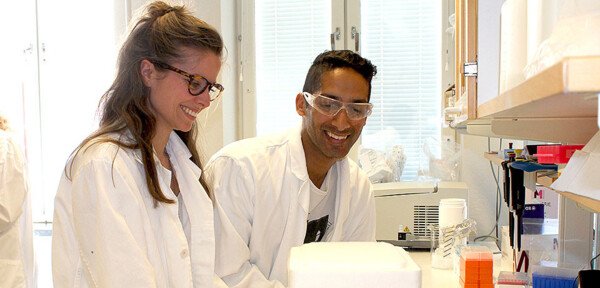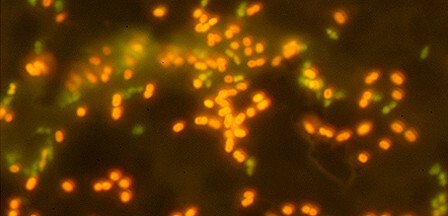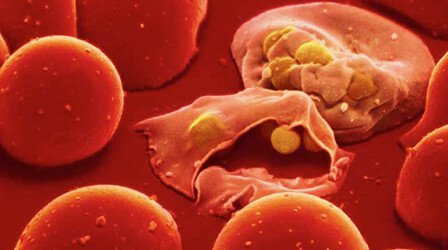Research Areas at MTC
Research at the Department of Microbiology, Tumor and Cell Biology covers the areas Virology, Bacteriology, Parasitology, Immunology and Tumor Biology.

The research interests are centered on the genetics and molecular biology of virus, bacteria and parasite replication, the role of gene products in abnormal cell growth, the use of microbes as probes for the study of signal transduction, transcription, translation, cell cycle regulation, cell differentiation, and cell death.
Specific research areas include:
- the biochemical mechanisms of cell growth control
- transformation, signal transduction, and transcriptional regulation
- the molecular genetics
- molecular biology and molecular pathogenesis of latent, persistent and cytolytic infections
- the characterization of receptor interactions and the mechanisms of cell entry
- the interaction with cells involved in innate and adaptive immune responses
- the pathogenesis of infection
- rational drug design
Cancer/Tumor Biology
This area is focusing on basic mechanisms in causation of tumors and tumor progression, including host responses to tumor development. It includes genetic factors and their protein products, such as oncogenes, cell cycle regulating genes, signal transduction genes, growth factors, apoptosis and cell ageing controls, and suppressor genes and susceptibility genes.
It also includes studies on genetic cancer susceptibility and familiar cancers, related molecular epidemiology, on the interplay between malignant and normal cells, cell adhesion, angiogenesis, metastasis formation, aspects on tumor regression, and research on the relationship between infections and tumor development, as well as related bioinformatics and biomcomplexity.
The application of this knowledge in the development on experimental treatments, such as gene and immunotherapy, and preventive measures is also included in this area of research.
Research at the department is carried out in several scientific areas which generates a diversified environment where crossfertilization between different fields has the potential to generate novel and groundbreaking concepts.
Research groups, teams and projects within the field of Cancer/Tumor Biology
Immunology
Research groups, teams and projects within the field of Immunology

Infection
Research in Bacteriology, Parasitology and Virology that is conducted at MTC sometimes goes under the collective name of "Infection Biology".
Bacteriology
Bacteria are present everywhere in our surroundings. Some bacterial species are beneficial for human health, while others can cause a variety of infectious diseases.
Today's research on the molecular basis of the interaction between bacteria and humans transcends the boundaries between bacteriology, cell biology, and immunology. Collectively, this work will reveal novel concepts for future therapies against bacterial infections.
Research groups, teams and projects within the field of Bacteriology

Parasitology
Parasites are eukaryotic pathogens that can be divided into the ectoparasites (e.g. flies, lice and ticks) and the endoparasites that actually enter the body of the host.
The latter group includes protozoa and worms of different phylogenetic affiliation. The genetic diversity among parasites is enormous and the study of these will reveal new biological concepts as well as improving the medical status of people around the world.
Research groups, teams and projects within the field of Parasitology
Virology
Viruses are small microbes that carry only very basic genetic information. They need cellular enzymes and proteins for replication. Viruses cause acute and chronic infections and they cause tumors in humans and animals.
The challenge is to identify both the pathogen and its pathogenic potential, and to discover means for chemical and immunological treatment. The relatively small genomes lend themselves to sophisticated analysis of disease-inducing and tumorigenic pathways when viral genomes are associated with or integrated into the human genome.
